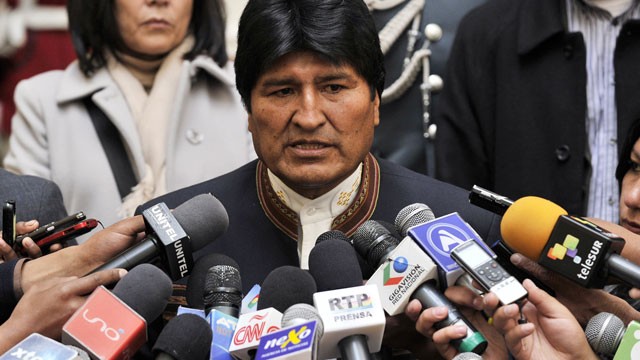
The president of Bolivia Evo Morales has signed a new law today that removes the 16% tax levied on digital book and physical book sales. The new law also calls for improvements in the country’s libraries.
A number of publishers will benefit from this new law and are likely see more book sales, due to the reduced prices in their physical and digital counterparts. Scholastic is one of the largest companies that has a presence in Bolivia. Perhaps the company that will benefit from this law the most is Bolivian publishing house Martínez-Acchini, in association with McGraw-Hill. Together, these two companies have been actively selling 310 digital textbooks exclusively through a network of brick-and-mortar bookstores. The titles often sell for less than 40 % of their print counterparts and are available immediately.
Bolivia has the dubious distinction of being one of the most pirated book countries in the world. Many major publishers actually stopped selling books and textbooks to that country due to the black market. Fortunately, organized networks of irregular printers established during the ‘90s, both in the country and in Peru, have the power and the tools to all but instantly reproduce any paper book that reaches the market, thus undermining the industry. This has driven up the price for the legitimate textbooks, which most often have students paying a deposit and waiting three weeks for the title to be mailed out to them.
In the most ironic twist to this new law, the president of Bolivia simply hates to read. During a recent press event he said “I have that problem, I don’t like to read.” Here is hoping that his fellow Bolivians do not echo his sentiment.
Michael Kozlowski is the editor-in-chief at Good e-Reader and has written about audiobooks and e-readers for the past fifteen years. Newspapers and websites such as the CBC, CNET, Engadget, Huffington Post and the New York Times have picked up his articles. He Lives in Vancouver, British Columbia, Canada.